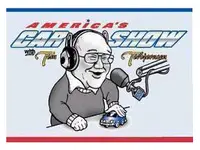Good Car Care Advice from Tom T - #1
 |
Tom Torbjornsen, host of "America's Car Show" radio program answers questions from his listeners. (Listen to Tom's radio shows every Saturday and Sunday right here on The Auto Channel)
Dear Tom, I just bought a 2009 Chevy Colorado and I had it undercoated at a place that sprays oil on the underside of the vehicle. It is really messy. Is this a good undercoating? Cheri from Buffalo
Cheri, I don’t like the oil spraying process because of the effect of oil on rubber. I have witnessed vehicles with swelled window and door gaskets resulting from this application. Sometimes the doors or windows won’t even close! In addition, as you pointed out, it’s a messy process. Finally, oil could combust when it comes in contact with hot exhaust parts. Get a Carwell application next time. It’s safer, lasts longer, and it doesn’t damage rubber. Tom
Dear Tom, I own a new 2010 Honda Accord. When I have the oil changed for the first time, would it be okay to use synthetic oil? If so, should I continue to use it for the life of the car? Finally, there seems to be a lot of road noise for a new car. Will undercoating help? Pete from Jamestown, NY
Pete, As for changing to synthetic oil, run the new engine to 1500 miles with the factory oil, and then change over to synthetic. Use full synthetic unless the owner’s manual specifies a semi-synthetic or not to use it at all. As for the road noise, ask the dealer to check for body or glass air leaks. Sometimes a gasket or body panel allows air into the vehicle’s cabin, creating the noise. If there’s no air leaks, then ask the dealer if they have road noise insulation products available. I don’t like to apply a hard undercoating to a vehicle because it tends to prevent salt and moisture from draining out, accelerating rust and corrosion. If you’re going to get a rust protection applied then use the Carwell system: www.carwell.com. Best to you. Tom
Dear Tom, I own a 2005 Hyundai Tucson with 35,000 miles. I plan on changing the front pads. Do I have to use the shims that are included with the brake pads? I have not experienced any noise or other braking problems. Thanks. Joe from Dallas, TX
Joe, Yes, use the shims and any clips they provide (for noise suppression). The shims insulate the pads from the calipers, thus reducing brake noise. The clips are designed to reduce pad rattle and movement. Leave them out and you may experience noisy brakes. I would also use a silicone brake pad insulator to “glue” the pads to the caliper pistons. Also, make sure you send the rotors out to be resurfaced with a non-directional cut so the pads wear in properly and no pedal pulsation ensues. Finally, make sure you clean and lubricate the caliper slides so they apply and release without sticking. Good luck! Tom
Dear Tom, I own a ‘90 Honda Prelude SI with a 2056cc 4-cylinder engine. The engine light came on about a month ago. I took the car to a repair shop and the owner did a scan. He said that ethanol in the gasoline caused the lit engine light. He also told me that the older cars were not designed to run on gas containing ethanol and not to worry about the light. Although the light still comes on, the car seems to run fine after the engine temperature reaches normal. Since I have been using gas containing ethanol for quite some time before the light came on, I am skeptical of the analysis and would like a second opinion. Thank you. Patrick from Niceville, FL
Patrick, I would be skeptical of this man’s analysis as well. There are millions of cars across the country in your car’s year range running on 10% ethanol gas with no ill effects or lit check engine lights. I would go to a qualified diagnostician that can get to the bottom of your check engine light. It could be a bad O2 sensor, airflow sensor, or a broken / bad connection. It’s hard to tell without tracking the problem down with the proper diagnostic equipment. A good shop will have access to repair info that will help the tech to track down the cause. Success to you. Tom
Dear Tom, You have probably heard it all, but here's another one. I own a ‘96 Buick Park Avenue. Ever since the middle A/C vents in the front have quit working, there is clear water (no smell) on the floorboard behind the driver seat. Any suggestions? Jo from Tallahassee, FL
Jo, Have the A/C condensation drain checked. It’s probably clogged with organic debris. Quite often plant matter gets into the air intake for the HVAC system and finds its way into the evaporator case, degrades, and forms a black nasty paste that clogs up the condensation drain. When condensation water forms from A/C operation in a hot climate, it spills over and into the vehicle. As for the malfunctioning vents, have the vacuum reserve chamber checked for a leak. Tom
Dear Tom, We own a PT Cruiser with a possessed “door ajar” light. With no identifiable predictability, the “door ajar” light will suddenly come on, as well as the interior lights, and then the automatic door locks cycle. Sometimes the door locks will cycle without the other indicators. My wife says she going to take the car for an exorcism. HELP!! Craig from Jamestown, NY
Craig, Have the doorjamb switches checked. When one of these goes bad, it causes the lights to come on erratically. Also, check the door lock switch on the driver’s side. An internal short will cause the locks to cycle. Tom
 |
‘Til next time…Keep Rollin’
For more articles by Tom Torbjornsen, visit AMERICA’S CAR SHOW web site: www.americascarshow.com
Tom Torbjornsen is an automotive expert of 37 years. An automotive journalist in good standing with the IMPA (International Motor Press Association), Tom is the Repair and Maintenance Editor for several websites.


